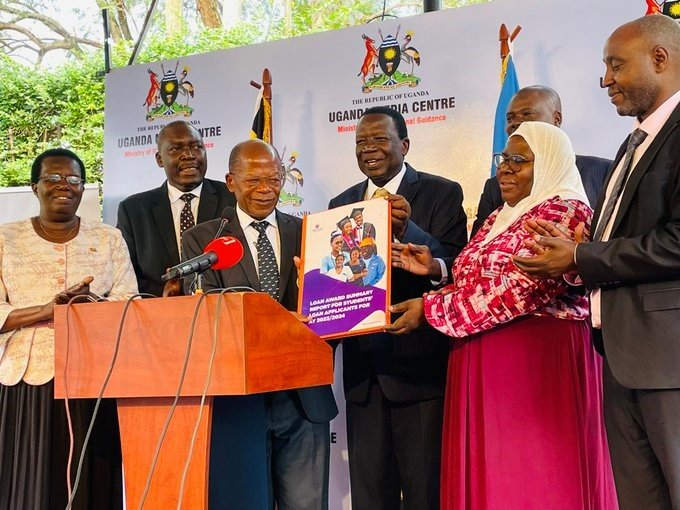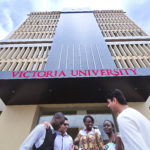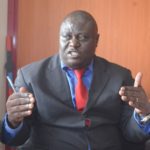The Higher Education Students Financing Board (HESFB) has released the list of the loan beneficiaries for the Academic Year 2024/2025.
Micheal Wanyama, Executive Director HESFB said that they received a total of 6,661 applications whereby a total of 2,880 applications were ineligible for various reasons, leaving only 3,781 applications to be reviewed for selection. Of this, a total of 1,838 applications were successful. The application process commenced on June 10 to July 31.
“The available resource envelope of Shs7.25 billion is meant to support the first years. On average, we shall support only 27.5% of the applicants,” Wanyama said.
Wanyama added that currently, in the financial year 2024/25, HESFB has an estimated budget of Shs37, 296,682,982, of which a total of Shs27, 125,665,000 is the annual loan budget.
Eng. Charles Wana-Etyem, Chairman Board of HESFB said that the number of young people who need the loan is more than the number of loan opportunities available. The 72.5% of the applicants were not successful due to a limited resource envelope.
He added that 1,838 have been successful, representing a success rate of 27.6% of the applications received; of these, 1,048 are males, while 790 are females.
The total number of female successful applicants, as earlier mentioned, is 790, up from 317 supported last academic year.
The Government has continued to award loans to persons with special needs on affirmative action to pursue both science and humanities programmes and a total of 29 students were successful. Of these 18 are males, while 11 are females.
John Chrysostom Muyingo, Minister of State for Higher Education said a total of Shs7.25 billion will be utilized by HESFB to support the new cohort of learners for the loan scheme.
Muyingo noted, “43% of our loan beneficiaries this year are females, the highest percentage since the interception of the scheme, reflecting our commitment to gender equity.”
With the approval of the Board and in accordance with section 20 of the HESF Act No. 2 of 2014, the scheme is only for Ugandans seeking financial assistance to pursue an accredited course of study of Higher Education in an accredited institution of Higher Learning recognized by National Council for Higher Education.
Since April 2014, the Board has been supporting mostly students oriented towards Science programs. This orientation was relaxed following the approval that learners with disabilities could be supported to pursue both science and humanities programs. This further aided increasing the number of Information and Communications Technology programs which do not necessarily require a learner to have prior science background.
Out of the 25 participating Universities on the scheme, all the 24 institutions have recorded learners apart from the African Bible University. And of the 33 other Tertiary Institutions participating in the scheme, only 20 institutions have received learners to be supported.








